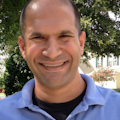Benson, North Carolina, Police Chief Greg Percy has served with the department for more than 20 years and was sworn in as chief in 2020. He also serves on the board of governors of the Small & Rural Law Enforcement Executives Association. Percy recently spoke to OFFICER Magazine about the importance of community policing for all agencies.
This interview has been edited for clarity and length.
How do your officers engage the community?
We have a community policing officer who started in 2009 with a grant from the Department of Justice. That officer is our liaison between the police department and the community and business owners. They are the point of contact for anything that the public needs as far as programming or educational opportunities. Having said that, our community policing program is the responsibility of every officer on staff, from myself down. It does become more difficult as our population grows. Last year our calls for service went up by 24%. You’re stretched thin at times, but we expect our officers to be that friendly face. From a programming standpoint, we participate in Coffee With a Cop sessions and we also participate in National Night Out. We read to kids at the library and host a summer sports program for disadvantaged youth.
How are they trained in community policing?
Our officers get their basic community policing training when they are in the police academies or the basic law enforcement training at our community college. Once they get to us, we do some more advanced training at our local community college and other training facilities. Most of it, to be quite honest, is passed down officer to officer. One of the things that I talk to every applicant about is our history of how and why we work in the community. The newer officers get to see the command staff and the supervisors at all of our community events. That community service mindset is passed down, just from seeing us there.
How does community policing differ from small departments to bigger ones?
Working in a smaller community, I believe it’s easier for us to be on a first-name basis with the business owners or some of the residents in town. Yesterday we were at the schools and you see these kids that you spent the summer with and you can remember their names and their parents’ names. It’s a more personal relationship. On the flipside though, the larger agencies may have a team of officers that they dedicate to community policing. It’s probably a little less of a strain than it would be on us given our size. That is one of the things that is unique to working in small town America and is something I want to try to preserve.
Does community policing still work today?
Community policing, at least for us, is still a vital component of what we do. There may be those who may not particularly care for us, but you have to engage them where they are to try to change their mind. Back several summers ago when the protests were taking place, we had one here in town. We went out and met with the group. They wanted to do a march, so we blocked off an intersection and let them hold their event. At the end of it, we all gathered in a circle, said a prayer and went our separate ways. They got to express themselves and we let them do what they needed to do and everybody was happy at the end of the day. It’s a give and take. To me, policing is more than writing tickets and making arrests. You can have just as much of an impact or sometimes more by offering a resource or simply being someone they can talk to. You never know how you are going to affect someone simply by listening to them or being a friend to them. I think a lot of times that gets lost in today’s world.
Learn more about the Small & Rural Law Enforcement Executives Association at https://smallrural.org
Listen to the full interview at officer.com/53073741
About the Author
Paul Peluso
Editor
Paul Peluso is the Managing Editor of OFFICER Magazine and has been with the Officer Media Group since 2006. He began as an Associate Editor, writing and editing content for Officer.com. Previously, Paul worked as a reporter for several newspapers in the suburbs of Baltimore, MD.

